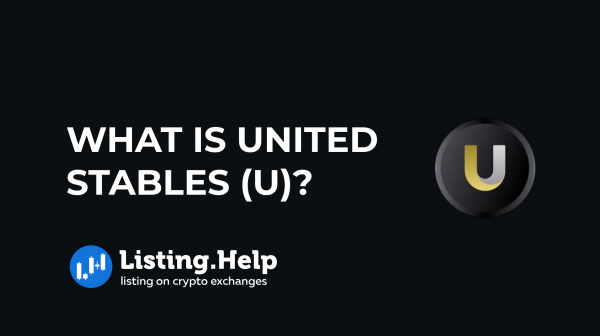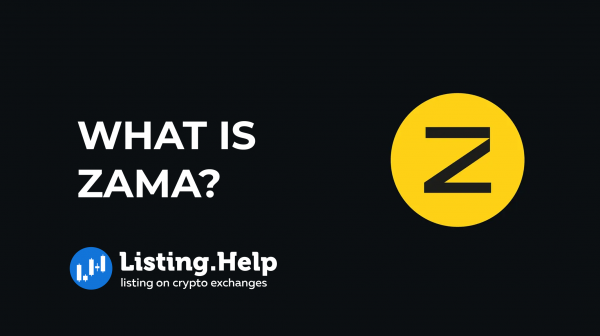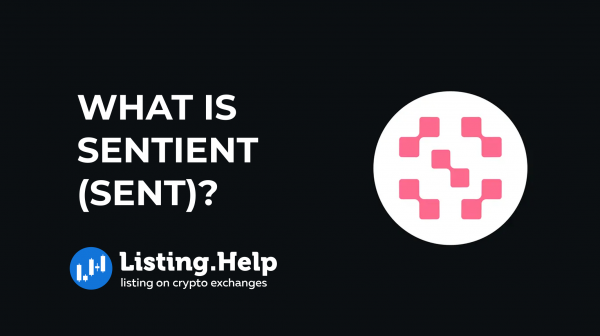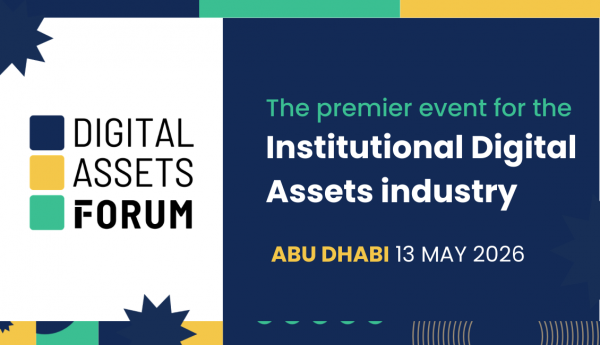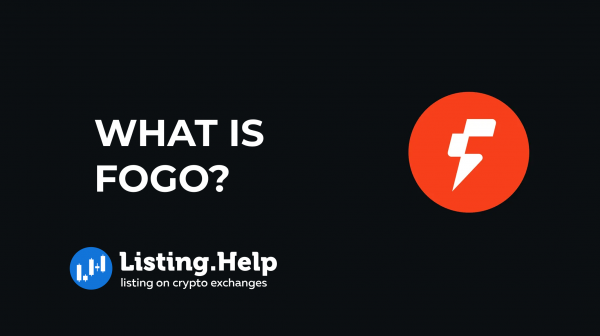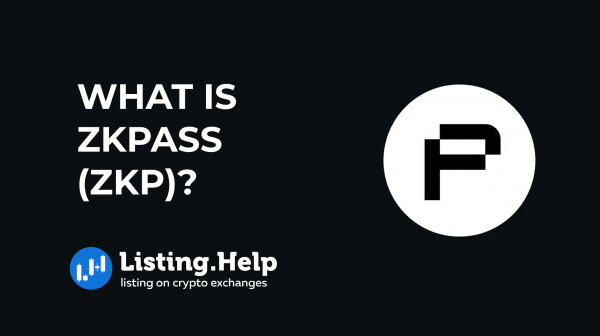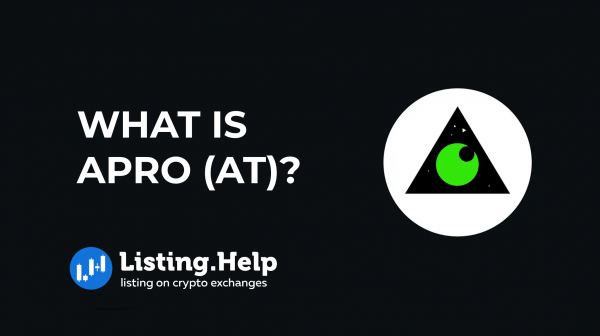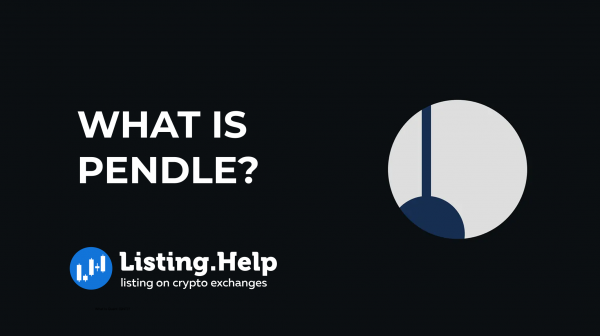What Are Decentralized Applications (DApps)?
 December 31, 2023
December 31, 2023 Updated: January 27 2025, 07:22
Updated: January 27 2025, 07:22
LEAVE A REQUEST
Launching your own token project? Our experts are ready to help with listing on exchanges, market making, marketing and other solutions
SUBMIT APPLICATIONWhat Is Decentralization?
Decentralization transforms how power and decision-making are dispersed in systems, shifting from centralized entities to a broad network. This approach reallocates authority, ensuring responsibilities are shared among various stakeholders rather than vested in a solitary decision-maker.
In traditional centralized frameworks, a singular authority or organization wields comprehensive control. Such an entity bears the weight of key decisions, enforcing regulations, and maintaining order.
Conversely, decentralization disperses this power, entrusting a wider array of participants with decision-making roles. Technological advancements, notably blockchain, are instrumental in this shift. Here, a network of computers, or nodes, collectively manages a unified database, with each node possessing the full database. This method effectively prevents any single point of dominance.
This concept is increasingly relevant across numerous sectors. In the financial arena, cryptocurrencies and Decentralized Finance (DeFi) are pioneering systems independent of conventional banking structures. Similarly, governance models are evolving, with Decentralized Autonomous Organizations (DAOs) enabling communities to collaboratively decide, free from the influence of a centralized authority.
What Is a DApp?
DApps, shorthand for decentralized applications, mark a significant shift in the app world by running on blockchain platforms. These applications stand out by offering superior security, enhanced transparency, and greater user control, thanks to their distributed management approach.
Consider the case of a DApp designed for social media. Instead of your content being stored on a company’s servers, it resides on a blockchain, making it accessible to all network participants. This setup contrasts sharply with traditional social media, where data is centralized. With a network of computers verifying every piece of information, the chances of the app’s creator manipulating or profiting from your data are significantly minimized.
DApps are versatile, catering to various needs. Some are focused on streamlining financial transactions, like DeFi platforms, which enable direct money transfers without banks. Others explore realms such as gaming, logistics, electronic voting, or digital art creation.
For the savvy investor, DApps represent an emerging market brimming with potential. They herald a future where apps are not only more secure and transparent but also put the power back in the users’ hands, thus paving the way for innovative investment opportunities across multiple sectors.
How do DApps work?
1. Smart Contracts as the Core: At the heart of every DApp is a smart contract. These contracts are composed of a series of pre-defined rules and conditions encoded in a programming language. When these predefined conditions are met, the smart contract automatically executes the agreed-upon actions.
2. Decentralized Network: Unlike conventional apps that run on centralized servers, DApps operate on a distributed network of nodes (computers). This network is usually a blockchain. Each node on this network has a copy of the smart contract, ensuring transparency and security.
3. Execution of Tasks: When the conditions outlined in the smart contract are triggered, each node in the network independently executes the tasks specified in the contract. This simultaneous execution across numerous nodes ensures that the outcome is consistent and tamper-proof.
4. Permanence of the Smart Contract: Once a smart contract is deployed on the blockchain, altering or removing it becomes challenging. This permanence ensures that the DApp continues to function even if the original development team is no longer active. Users can still access and use the DApp as intended.
5. User Interactions: Users interact with DApps through a user interface, similar to traditional apps. However, instead of transactions being processed through a central server, they are processed through the blockchain network, following the rules set by the smart contract.
This structure makes DApps inherently resistant to censorship, downtime, and external control, providing a more secure and transparent digital environment. The reliance on smart contracts and a peer-to-peer network also means DApps can operate autonomously and continue to function without centralized oversight or control.
Pros and Cons of DApps
DApps, or decentralized applications, offer a range of advantages and also face several challenges. Let’s explore both of these aspects:
Advantages of DApps
1. DApps are built on blockchain technology, which is known for its high transparency. Every transaction and activity is recorded on a public ledger, accessible for verification and auditing by anyone. This level of openness fosters trust and integrity in the application’s operations.
2. Operating on decentralized networks, DApps empower users with ownership of their data and assets. This setup enables direct interactions among users without the need for intermediaries or central authorities, enhancing user independence and control over their digital assets.
3. DApps often promote innovation by allowing developers to build upon existing platforms and protocols. Additionally, the open-source nature of many DApps encourages collaboration among developers and the community, leading to continuous improvements and developments in the applications.
Disadvantages of DApps
1. A significant hurdle for DApps is their scalability. Certain blockchain networks face limitations in processing speed and capacity, which can lead to slower transaction times and increased costs, particularly as the number of users and transactions grows.
2. Compared to traditional centralized applications, DApps often present a more complex user experience. Interacting with blockchain networks, managing digital wallets, and understanding the nuances of the technology can be challenging for new users, posing a barrier to wider adoption.
3. The decentralized nature of decision-making in DApps can lead to governance difficulties. With multiple stakeholders involved, reaching consensus on updates or resolving conflicts can be more cumbersome and time-consuming than in centralized systems.
What Are the Risks of Dapps?
Due to the lack of intermediaries, the responsibility for security largely falls on the users and the robustness of the system itself. Despite strong security measures and smart contract bug bounty programs, these contracts may still harbor weaknesses that malicious parties could exploit, potentially leading to financial losses or other negative outcomes.
Another critical area of concern is the security of wallets, exchanges, and the blockchain infrastructure itself. These components are often targets for hackers. Users need to be vigilant in safeguarding their private keys, steering clear of phishing schemes, and choosing well-regarded wallets and platforms.
A unique aspect of DApps is that they transfer the responsibility of managing private keys and digital assets directly to the users. Mistakes in handling these keys, like misplacing them or letting them get exposed, can have dire consequences, such as the irreversible loss of assets.
What Are the Current DApp Use Cases?
1. Decentralized Finance (DeFi):
DeFi is a standout in the blockchain space, offering an array of financial services that mirror traditional systems but with a decentralized twist. This includes lending, borrowing, decentralized exchanges, stablecoins, yield farming, and automated asset management. DeFi DApps are reshaping finance by providing open, permissionless, and transparent alternatives to the established banking and financial systems.
2. Non-Fungible Token (NFT) Platforms:
The surge in NFT popularity has revolutionized how digital assets are created, bought, and sold. DApps in this domain enable artists, creators, and collectors to tokenize and exchange unique items such as digital art, collectibles, and even virtual real estate on blockchain networks, providing proof of ownership and authenticity.
3. Gaming and Virtual Worlds:
In the gaming sector, DApps are facilitating the development of decentralized platforms where players have genuine ownership and trading capabilities for in-game assets. These applications utilize blockchain to ensure scarcity and verifiable ownership of virtual items, adding a new dimension to gaming experiences.
4. Governance and Voting:
DApps are also instrumental in fostering decentralized governance and voting mechanisms. These applications offer a transparent, auditable, and secure means for communities and organizations to make collective decisions, vote on proposals, allocate resources, and implement changes, thereby enhancing democratic processes.
5. Decentralized Storage and Computing:
Moving beyond centralized server reliance, some DApps are exploring ways to use distributed networks for secure data storage and processing. This approach aims to mitigate the risks associated with single points of failure and potentially enhances data protection and privacy.
6. Identity and Authentication:
Focusing on personal data control, certain DApps are dedicated to decentralized identity and authentication solutions. These platforms enable users to manage their identity securely and prove it without depending on centralized entities, thus offering enhanced privacy and control over personal information.
Conclusion
DApps, an integral part of blockchain technology, offer significant benefits like user autonomy and censorship resistance, but they also face challenges such as user experience issues and smart contract vulnerabilities. As the DApp ecosystem expands, it’s essential for users and developers to address these challenges with responsible development and a focus on security.

For further insights into the latest trends and developments in blockchain technology, we invite you to explore our blog at Listing.Help.




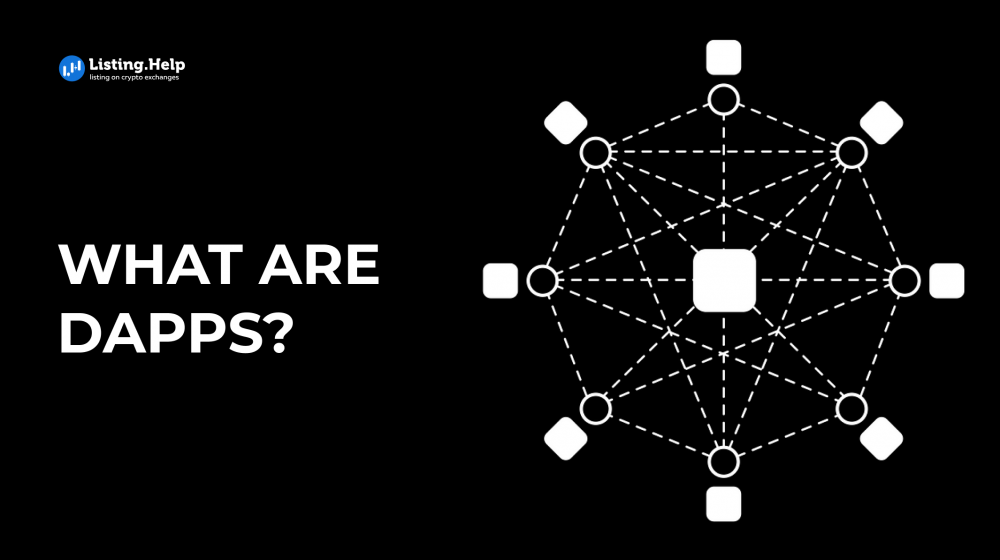

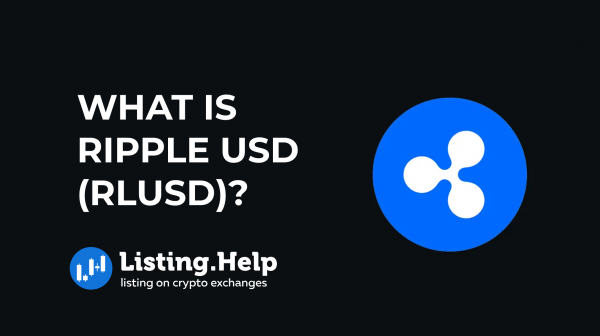
 March 4, 2026
March 4, 2026 